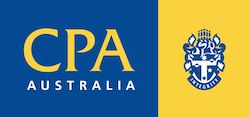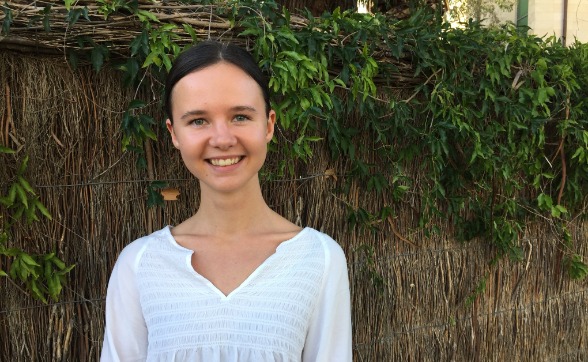Undergraduate
Accounting
Contact us
Address
Student Central
The University of Western Australia (M355), 35 Stirling Highway, Perth, Western Australia 6009
Telephone
131 UWA (131 892)
International
(+61 8) 6488 1000
Hours
Frequently asked questions
Events you may be interested in
Show more eventsCareers and further study
This course opens up a world of future study pathways and career opportunities.
Career Pathways
Further Study
Careers you could embark on with a Commerce or Business degree

Studying a Business or Commerce degree opens up a whole raft of career options. To give you a snapshot of where our Commerce and Business majors could take you, check out some of our recent graduates’ stories.
Master of Commerce
Fees and scholarships
Domestic Student Fees
For Commonwealth-supported places, student contribution amounts are charged by unit, based on area of study. For a fee estimate, go to the Fee Calculator and select “I want to price my units”. Fees are subject to annual indexation. Refer to the Handbook to identify the units required. More information on how fees are calculated.
Scholarships
Scholarships are available to students from a diverse range of backgrounds, including academic achievement, financial need, educational disadvantage, leadership and community service, artistic or sporting achievements, and being from a rural or remote area.
Cost of living
International Student Fees
Onshore international students are charged an annual course fee, charged per credit point at a rate dependent on the course in which the student is enrolled. Annual course fees are calculated based on an annual study load. Check the handbook to confirm the annual study load for your course.
Find out more about international student tuition fees and visit the fee calculator for the relevant course fees.
Fees are subject to annual indexation.
Scholarships
Scholarships are available to students from a diverse range of backgrounds, including academic achievement, financial need, educational disadvantage, leadership and community service, artistic or sporting achievements, and being from a rural or remote area.
Cost of living
Admission requirements
The University of Western Australia welcomes applications from international and domestic school-leavers. If you’re interested in studying one of these majors, find out the admission details below.
Admission requirements
English competency
English is the language of instruction and assessment at UWA and you will need to meet the English language requirements of the University to be eligible for a place.
Minimum overall IELTS score of 6.5, with no band less than 6.0.
How to apply
Apply through TISC
- Log in to the TISC website
If you’re a Year 12 student studying a WACE course at a WA high school or a pathway program, you are already automatically registered with TISC. - Select your preferences
You can choose up to six preferences when you apply through TISC. You should list your preferences in order from your most desired course onwards; this way you’ll have plenty of options to get into UWA. - Lodging your application
You’re almost there! After answering a few questions, you’ll need to make a declaration about your application. - Application processing fee
Your TISC application is lodged once you’ve completed the payment. For more information on fees and payments, visit the TISC website.
Course details
Accounting prepares you for a career across borders. Acknowledged as ‘the language of business’, accounting is spoken by all organisations – big and small – including government agencies and departments, and all not-for-profit institutions around the globe. A major in Accounting will offer you a variety of career paths in the private and public sector, public accounting firms, small business and self-employment.
About the course
Accounting is essential for monitoring and guiding business operations to enable managers to gain an accurate and up-to-date picture of the financial health of their organisations.
Our Accounting major focuses on the preparation, interpretation and communication of accounting information that is essential for effective decision making within an organisation. You can choose to undertake focused study in financial or management accounting, or complete a more generalised program of study covering a range of accounting subjects in greater depth.
Get practical
Accounting students build practical, industry based experience through units that involve workshops, team exercises and group projects. For example, auditing students will work on a case study with senior staff members from Ernst and Young who lead training in the classroom based on current examples.
Quick details
- Available
- Perth (Crawley campus)
- Albany (Regional campus)
- Full-time
- Part-time
- On-campus
- Semester 1, Semester 2
- 12-15 contact hours, plus at least twice as much of your own study time
- Undergraduate
- MJD-ACCTG
- 3 years (BCom); 4 years (BPhil [Hons])
Course Structure
Our undergraduate degrees offer you a broad range of options allowing you to combine subjects in a way that matches your career goals and personal interests.
Popular combinations
Which Business or Commerce major should I choose?

If you’re keen to get into the business world and are considering a Bachelor of Business or Bachelor of Commerce, you might be surprised at the variety of majors on offer.
From economics to entrepreneurship, here’s how to decide which major might be right for you.
You'll learn to
- prepare financial accounting reports
- analyse accounting information to evaluate business performance
- use accounting information for optimal resource allocation
- communicate the results of financial analysis
What's the difference between the Bachelor of Commerce and Bachelor of Business?

If you’d like to study business, how do you decide between a Bachelor of Business and a Bachelor of Commerce? We tell you how.
Course accreditation
The Accounting major (MJD-ACCTG) in any course leading to a Bachelor of Commerce or Bachelor of Philosophy is accredited Chartered Accountants Australia and New Zealand (CA ANZ) and CPA Australia.


Accreditation



The UWA Business School is accredited by EQUIS and the Association to Advance Collegiate Schools of Business (AACSB), and is a Communicating Signatory to Principles for Responsible Management Education (PRME).
EQUIS and AACSB are the leading business school accreditations in Europe and North America respectively, meaning that your business degree will be recognised by employers around the world.
Your degree options
This major is offered as a degree-specific, or first, major for these degrees. It is also offered as a second major in our other bachelor's degrees.
Why business degrees are worth it

In this uncertain climate, a business degree is a valuable investment. Australian business graduates enjoy some of the highest employment rates in the country - here's why a business degree is worth it.
Courses that can lead to a management role

Organisations and businesses stand or fall on how well they are managed. Here are five undergraduate majors from UWA that will give you the skills and confidence you need to enter the workforce and take the reins.
You may also be interested in these courses
Why take a second major
- Expand your skills - Taking a second major either in a complementary area or in something like music or languages will show you have developed skills such as, teamwork, creativity, critical thinking, digital literacy and presentation skills – which are highly sought after in the workforce.
- Add it to your resume – Employers are looking for graduates who have skills in a variety of areas. Two majors will expand your career prospects and help you stand out amongst the crowd.











 Bachelor of Philosophy
Bachelor of Philosophy
 Bachelor of Commerce
Bachelor of Commerce
 Management
Management